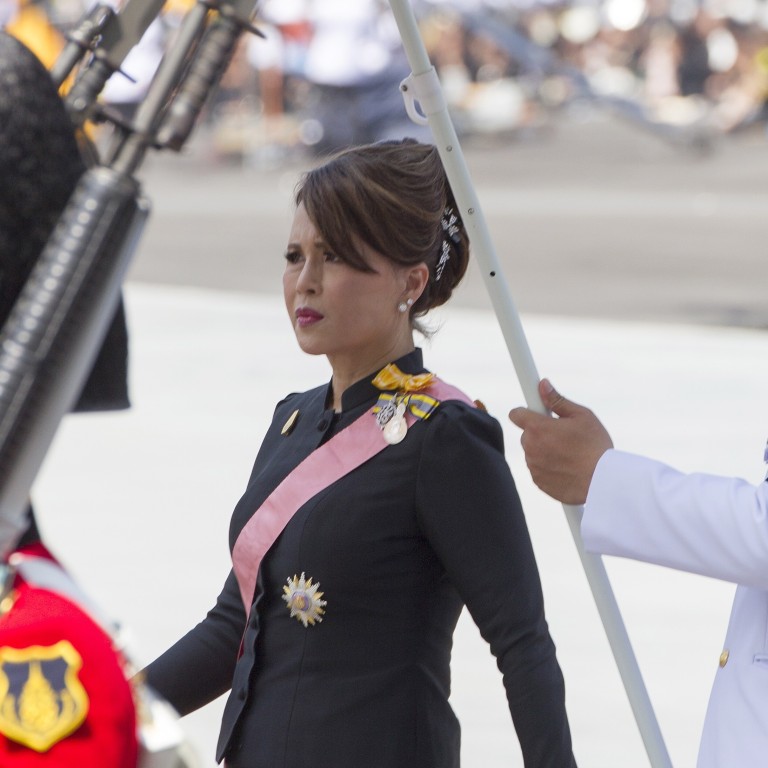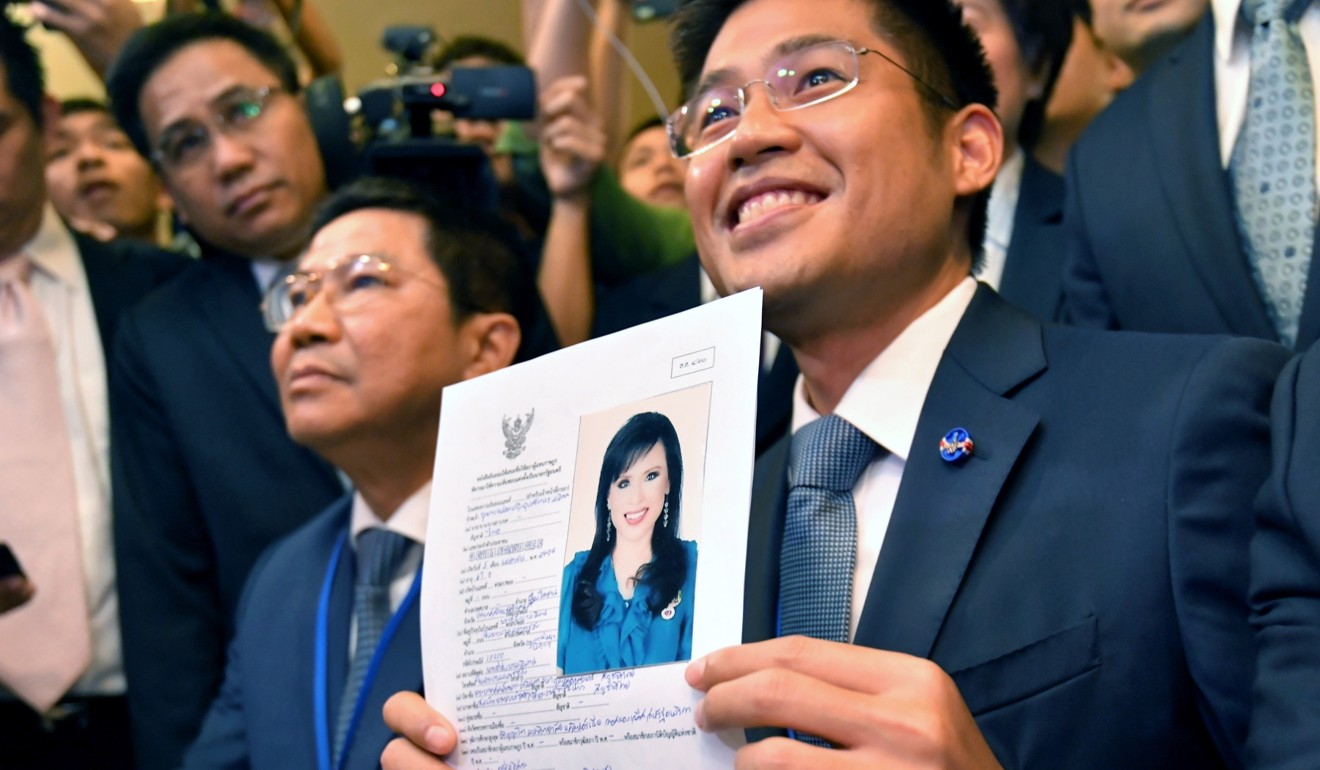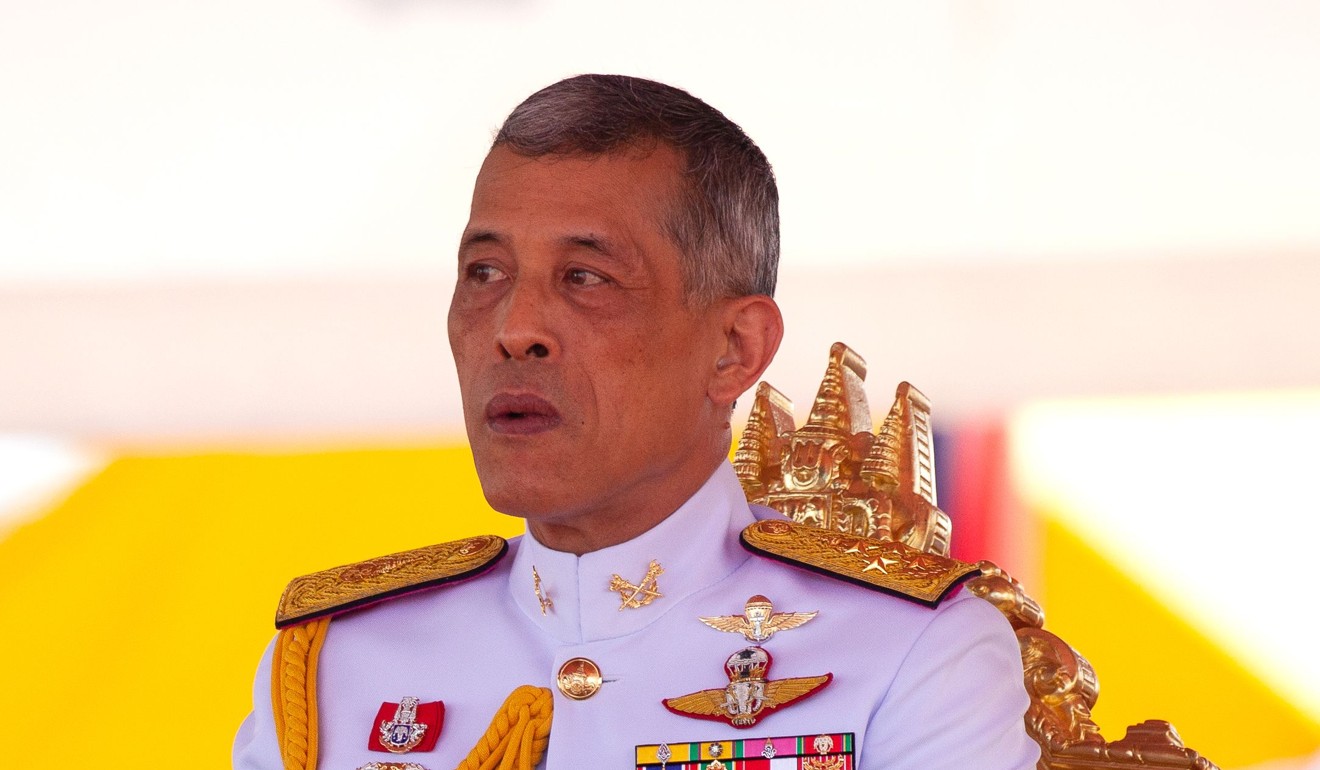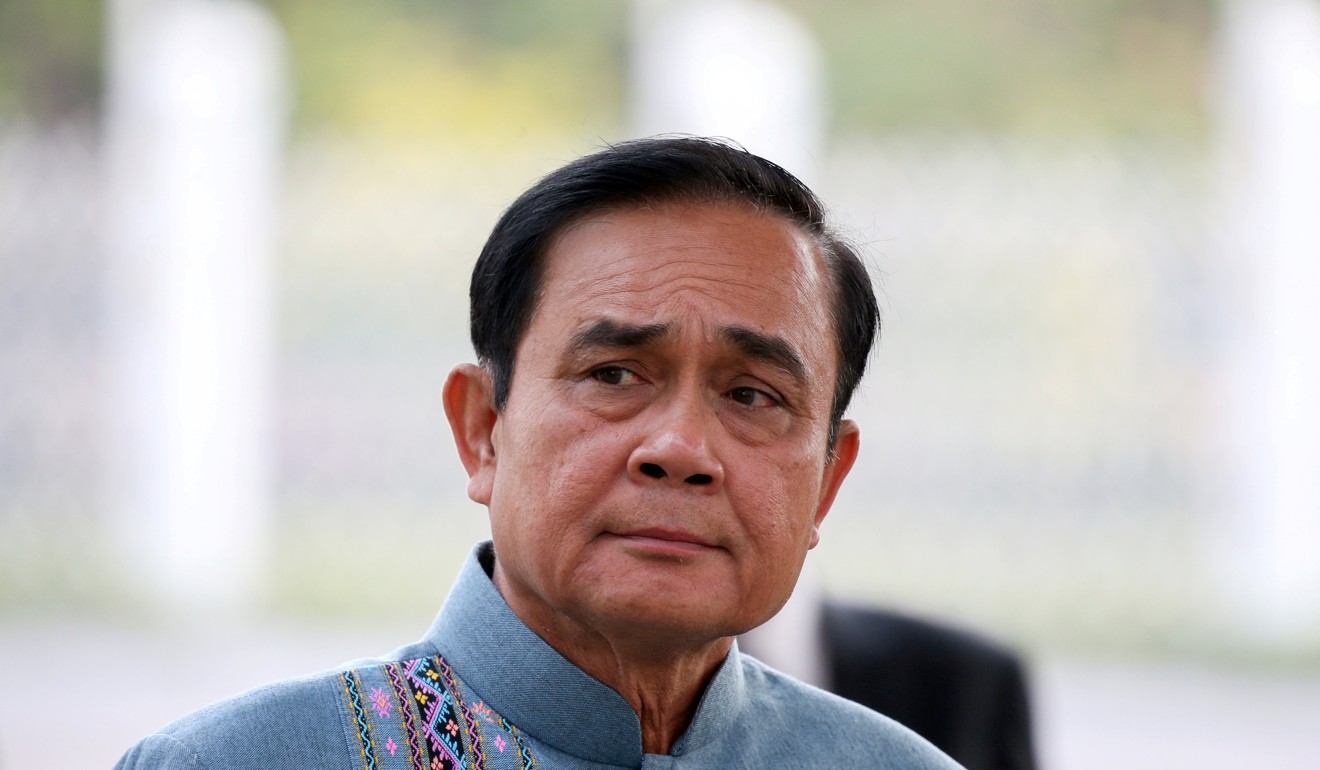
Thailand’s election commission quashes Princess Ubolratana’s prime ministerial bid
- Royally appointed body formally blocks the princess’ bid to enter politics, aligned with the Shinawatra clan
- Reaction to the veto has been mixed, with some saying it bodes ill for the March 24 election’s hopes of returning democracy to junta-led Thailand
The veto capped a day of furious online speculation about the next plot twist in the coup-happy kingdom’s latest political drama.
Thailand’s Princess Ubolratana Rajakanya seeking election as prime minister, turning campaign on its head
The Election Commission’s statement echoed the King’s royal command, issued late on Friday, which said 67-year-old Ubolratana’s plan to enter politics was against the constitution.
“All royal family members are above politics and are politically neutral,” the commission said. “They cannot hold political office because it would be unconstitutional and against the norms of democracy with the king as head of state, in accordance with the royal decree released on February 8.”

The princess, an avid Instagram user, took to the social media platform to defend her decision after the party’s announcement, claiming she was well within her rights to run in the polls because she had relinquished her royal status decades ago.
While she did give up her royal titles in 1972 upon marrying an American man – whom she has since divorced – Vajiralongkorn in his Friday statement said he continued to consider her part of the ruling Chakri dynasty.
From Pattaya with love: forget sex trainers, meet the real Russians of Thailand’s party town
The one-time actress holds the title of Toon Kra Mom, or “daughter of a reigning queen”, but the title grants her no rights to royal succession or to be referred to as “Her Royal Highness”.
Political analysts meanwhile were continuing their efforts to get a grasp on what transpired between Friday morning – when Ubolratana’s candidacy was confirmed – and the late-night statement by her brother on the same day.
Commentary has been muted because of concerns over Thailand’s strict lèse-majesté rules, which bar criticism of the royals.

Thitinan Pongsudhirak, an internationally renowned Thai academic, said in an op-ed on Monday that international media may have overblown the tone of the king’s statement.
While the royal command “has been referred to variously in key international media platforms as the King’s ‘condemnation’, ‘denunciation’ and ‘rebuke’ of the princess’ entry into politics, its nuance, subtlety and balance suggest otherwise,” Thitinan wrote in the Bangkok Post newspaper.
Thailand election: political restrictions signal bumpy road for return to democracy
“There was no direct order of what has to be done but an indication of what cannot take place,” wrote the Chulalongkorn University professor.
Analysts outside Thailand offered an alternative take, suggesting the veto offered hints on how the kingdom’s political landscape is likely to shape up after the March 24 vote.
On Friday, the immediate reaction to Ubolratana’s candidacy among the commentariat was that the princess’ foray into politics could help solve the turmoil between the Shinawatras – whose clout stems from a rural mass base – and the urban, pro-military elite who despise the clan.

But Eugenie Merieu, a Thailand researcher at the University of Gottingen in Germany, said in a commentary the royal veto revealed that “Thailand is a military dictatorship under royal command”.
“Whatever happens after the voting in March – whether civilian parties win, or military forces do, or some combination of both form a government together – the election will not bring democracy back to Thailand,” she wrote in The New York Times.
With a new king, will 2019 herald a new political normal for Thailand?
With the disqualification of Ubolratana, Prime Minister Prayuth Chan-Ocha is now a shoo-in to remain in power after the election. His candidacy for the pro-junta Palang Pracharat Party was among 69 prime ministerial bids from 45 parties approved by the Election Commission Monday.
Under a new constitution enacted by Prayuth’s administration, the prime minister must obtain majority support from the 500-seat lower house and the 250-seat senate, which will be filled with military appointees for the first five years after the March 24 vote.
Observers say the changes are meant to neuter the populist Shinawatra bloc, which has won every election in the country since 2001.


